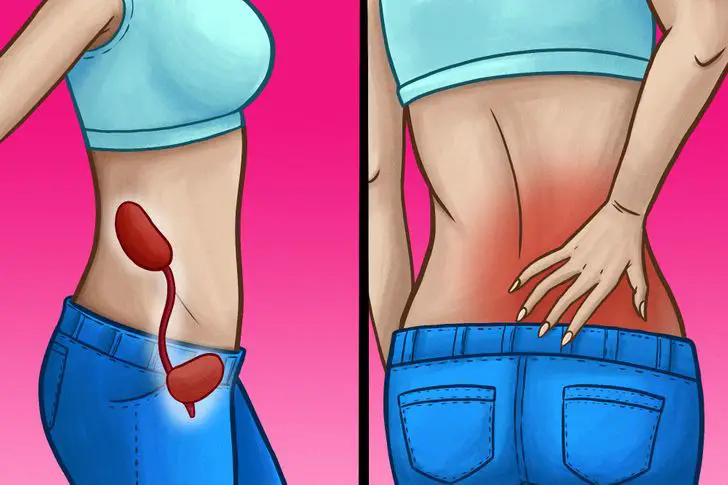The kidneys play an important role for the health of our body since they are responsible for keeping the pressure of our blood and arteries under control, the levels of electrolytes, liquids, among other things, these organs are located in the back of the stomach.
The risks of contracting infections and other diseases are latent just as it happens with other vital organs of the body, when the kidneys present some type of anomaly it is very difficult to detect in its initial stage, sometimes it is necessary to perform a urine or blood test to detect the problem.
However, there are some physical signs that could also help suspect the development of an abnormality.
1. Excessive tiredness
Chronic fatigue is the result of the blood having difficulty carrying oxygen to the body’s cells when you develop a kidney problem.
The kidneys have a lot to do with the production of red blood cells and their deterioration prevents them from being produced in adequate quantities.
2. Itchy skin
Through kidney function a large part of the toxins in the blood are expelled from the body through the urine.
Due to the malfunction of these, the waste remains retained in the tissues and it is common to feel itching or tingling under the skin.
3. Edema
Fluid retention or edema is one of the strongest symptoms of kidney disease.
Although many factors influence its appearance, kidney failure is one of the main causes.
These organs control the levels of water and sodium in the body, so a malfunction prevents them from being properly balanced.
This symptom can also arise when there is a large loss of protein through the urine, a condition called nephrotic syndrome.
The swelling is usually concentrated in the feet and ankles, although it sometimes occurs in the arms, face and other parts of the body.
4. Anemia
Anemia pictures in patients are an indication that kidney disease is already advancing in its level of severity.
These organs are responsible for producing a hormone called erythropoietin, which is responsible for stimulating the bone marrow to produce blood cells.
Because its function is compromised in a severe stage of kidney failure, its levels decrease markedly and chronic anemia occurs.
5. Back pain
Pain in the lower back or on the sides of the body may signal possible kidney disease, especially in elderly patients.
Although it is not a very common symptom, it can occur in the presence of stones in the kidneys or in the urinary tract.
In these cases, the ailment is usually intense and tends to be accompanied by other symptoms, such as difficulties urinating or a burning sensation.
It is important to distinguish this ailment from that produced by the muscles, especially since it can be key to the timely detection of a serious condition.
6. Changes in urine
Knowing how to distinguish urine from healthy kidneys is crucial to being able to find warning signs of kidney difficulties.
When these organs develop some type of failure, problems such as:
More desire to urinate in the middle of the night.
Urine that looks foamy or bubbly.
Foul-smelling, dark-colored urine.
More amount of urine, with a too pale color.
Difficulty urinating more than four times a day.
urinary incontinence
Presence of blood in the urine.
7. Bad breath
Ammonia breath and a metallic taste in the mouth can be caused by a buildup of toxins in the blood from kidney failure.
This uncomfortable symptom is difficult to control, even with correct oral hygiene habits.
Although all the symptoms mentioned can be generated by multiple causes, it is worth considering that their origin is a kidney problem.
Consult the doctor in case of suspicion and request the respective tests to verify that everything is fine.
